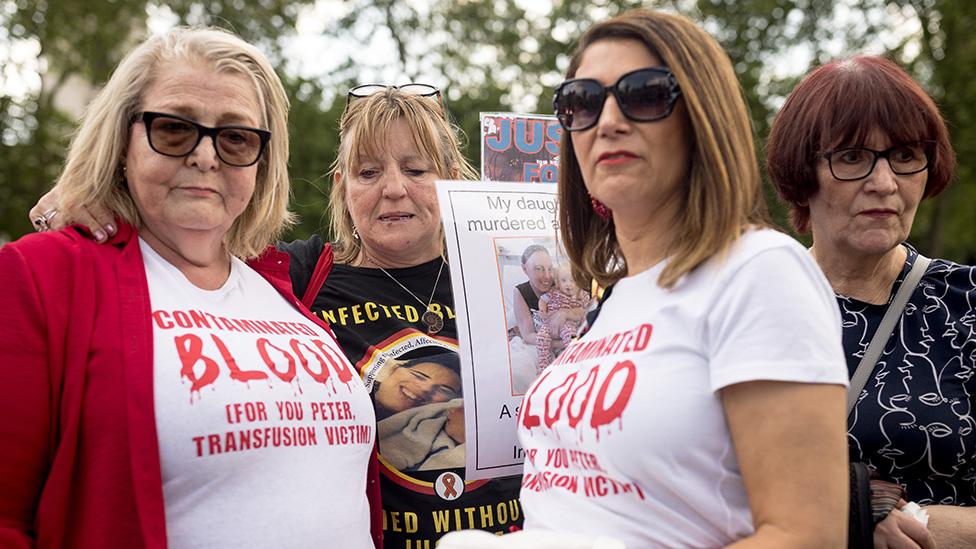My father died of HIV from infected blood scandal
- Published
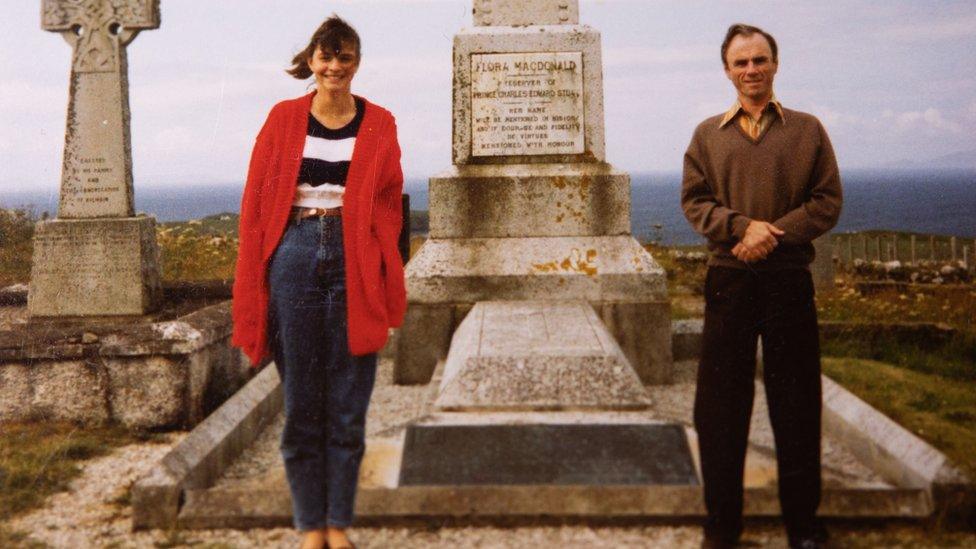
Suzie with her father John who died in 1990
My father died as a result of one of the greatest scandals in NHS history.
In the 1970s and 80s thousands of British people with blood disorders such as haemophilia were given a new clotting agent called Factor VIII.
It was bought from the USA, where people were paid to give blood, which meant they often included people such as drug addicts.
More than 4,500 people in Britain contracted Hepatitis C and HIV because of Factor VIII.
My father, John Kenneth Algie, contracted both Hepatitis and HIV.
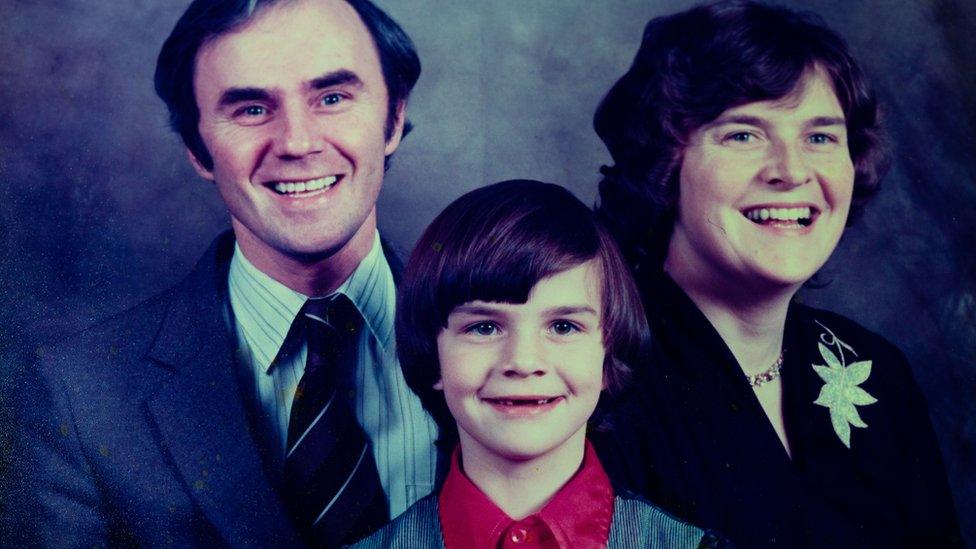
John Algie died when Suzie was a teenager
He died in August 1990, aged 50.
In 2019, a public inquiry got under way to determine exactly what happened, what went wrong and how people were affected.
My mother and I had the opportunity to tell our story to the lawyers.
When I read my evidence - when I saw my story written down in black and white just as I'd told it to the lawyers - I realised it was not my adult self who was speaking, but the teenage me, aged 15.
That's when I realised I had not dealt with what had happened. Since then, I've been trying to make sense of my emotions.
I was 14 years old. We cared for him at home as best we could, but he was also in and out of hospital.
He was treated differently now that he had HIV.
My mother carried a great burden during that time.
We told very few people about my father's HIV status because of the stigma attached.
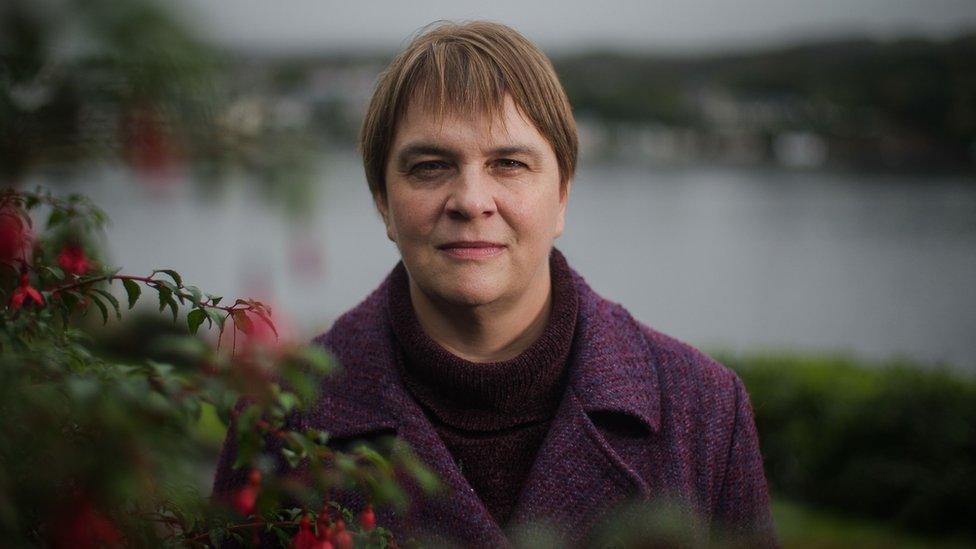
Suzie Roberts says she has never before dealt with the trauma of her father's death
She even feared I would be expelled from school.
As he approached death my mother, Cathie Algie, decided to tell the school.
"The teacher was amazing," my mother told me.
"She said 'do you mean to tell me that this child I taught yesterday is having to cope with this without any of us here knowing? Why did you not tell me?'
"I said it was because I did not know how you would react."
I've never met anyone else who was affected by this and have decided to do so, now for BBC Alba's Eorpa programme.
I used to work for the programme but now I am church minister in Dorset.
Working with the documentary team allowed me to meet Tony, who lost his father to HIV. He was a haemophiliac.
I was looking forward to meeting him, but at the same time I was slightly worried because, in the past 30 years, I've never met anyone who was affected by this scandal.
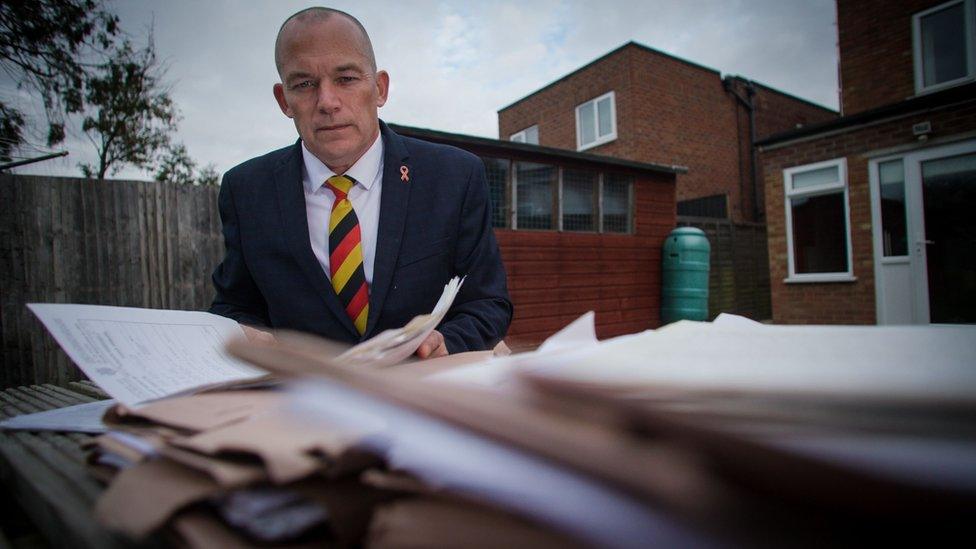
Tony now understands that HIV affected his father's mind and behaviour
With things difficult at home, Tony was put into care as a child.
While he was there, he discovered that his father, Barry, had HIV.
Tony now understands that HIV affected his father's mind and behaviour.
Barry had a mental breakdown and he was sectioned.
Tony tells me that when he read his father's notes and discovered the torment he had been through it had a massive impact on him.
"That's when I developed issues," Tony says.
"I developed IBS, psoriasis. I was really unwell. It was stress."
Tony helped to set up a group, The Fatherless Generation, for children who had lost their fathers.
They support each other. He also campaigned for many years for a public inquiry.
I'm so happy to have met Tony. It was so good to be able to talk to someone, for the first time in 30 years, who understood what we were dealing with at the time of my father's death.
I also met Richard, who is a haemophiliac that has lived with HIV since he was a young man.
I had no idea until recently that there were any surviving haemophiliacs who contracted HIV at that time.
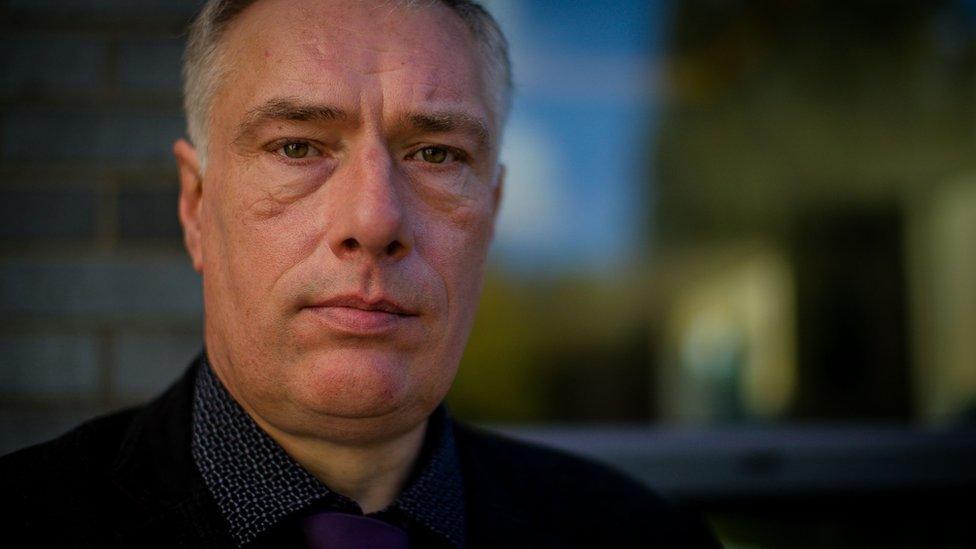
Richard did not expect to survive this long
Richard doesn't know what it's like to be free from pain. Pain and pills are part of his daily routine.
He contracted Hepatitis and HIV from Factor VIII. He also developed epilepsy as a result of HIV.
Like others, he was not told he had HIV for some time.
Some of his doctors knew for four years before he was informed in 1988.
Richard had been in a special school, Lord Mayor Treloar College in Hampshire, which was attended by many boys with haemophilia.
There is evidence that 1,243 people contracted HIV from Factor VIII. Fewer than 250 are still alive.
Among those who died, there are more than 70 pupils of Treloar College.
Richard did not expect to survive this long.
He told me: "You ask yourself why am I still here. What have I done differently that I deserve to be still alive when these other people have died.
"It is a very difficult area. It's difficult to understand. It haunts me to think about. It's really tough."
It was difficult meeting Richard and hearing about everything he's been through.
But at the same time meeting him was uplifting. I'm so happy that he's still alive.
Richard, Tony and I are following the inquiry closely. Evidence will continue to be heard for several months and its findings may not be published until 2023.
By giving people a voice, the inquiry has already made a difference. It's what prompted me to search for people who would understand how I feel.
It has been difficult, but at the same time it's been of great help to me to meet other people who have been affected by this scandal and who live with it every day.
I have greater understanding of what other people are going through and my own story, and how I feel about what happened to me.
This episode of Eòrpa airs on BBC Alba on 11 November at 20:30 and is on the BBC iPlayer.
